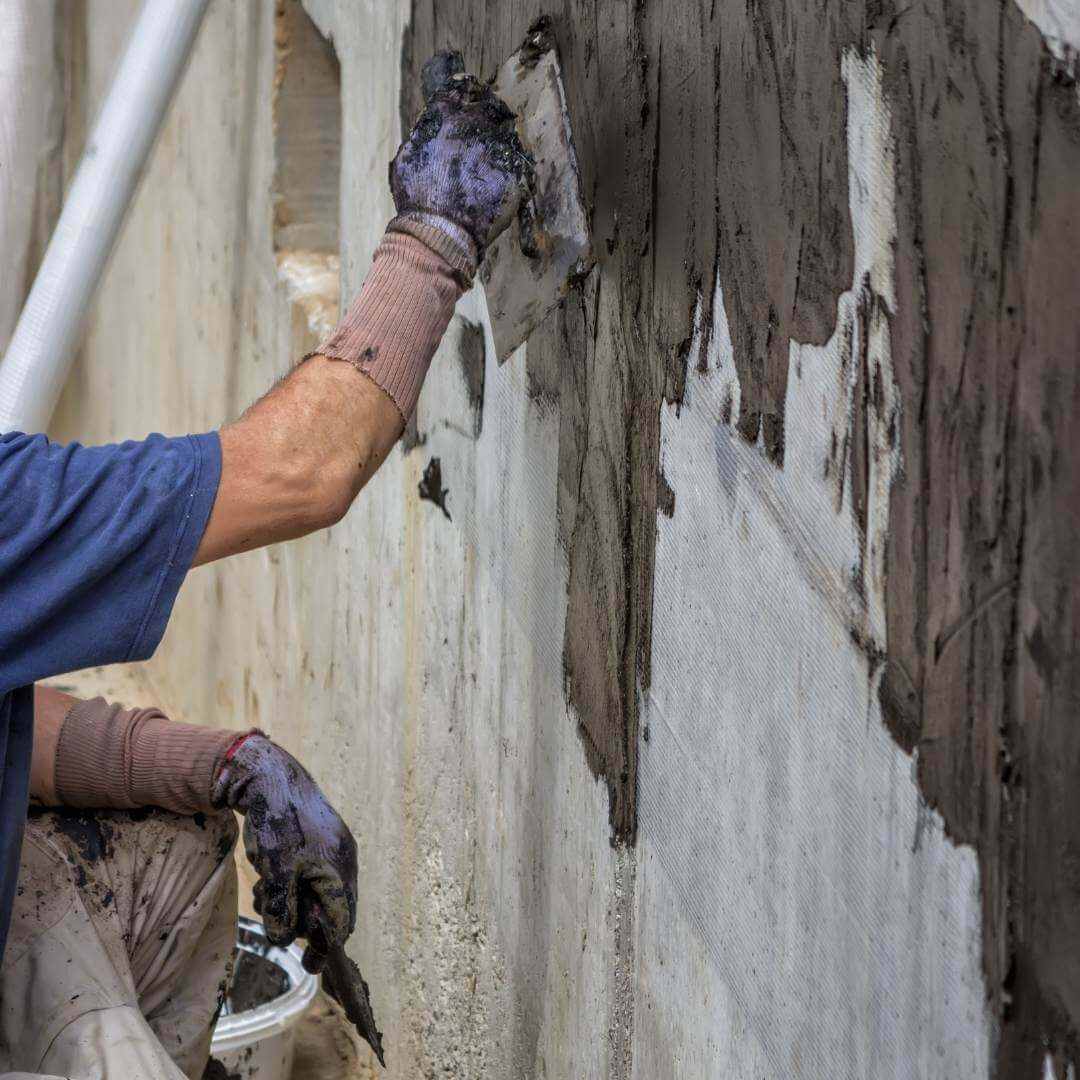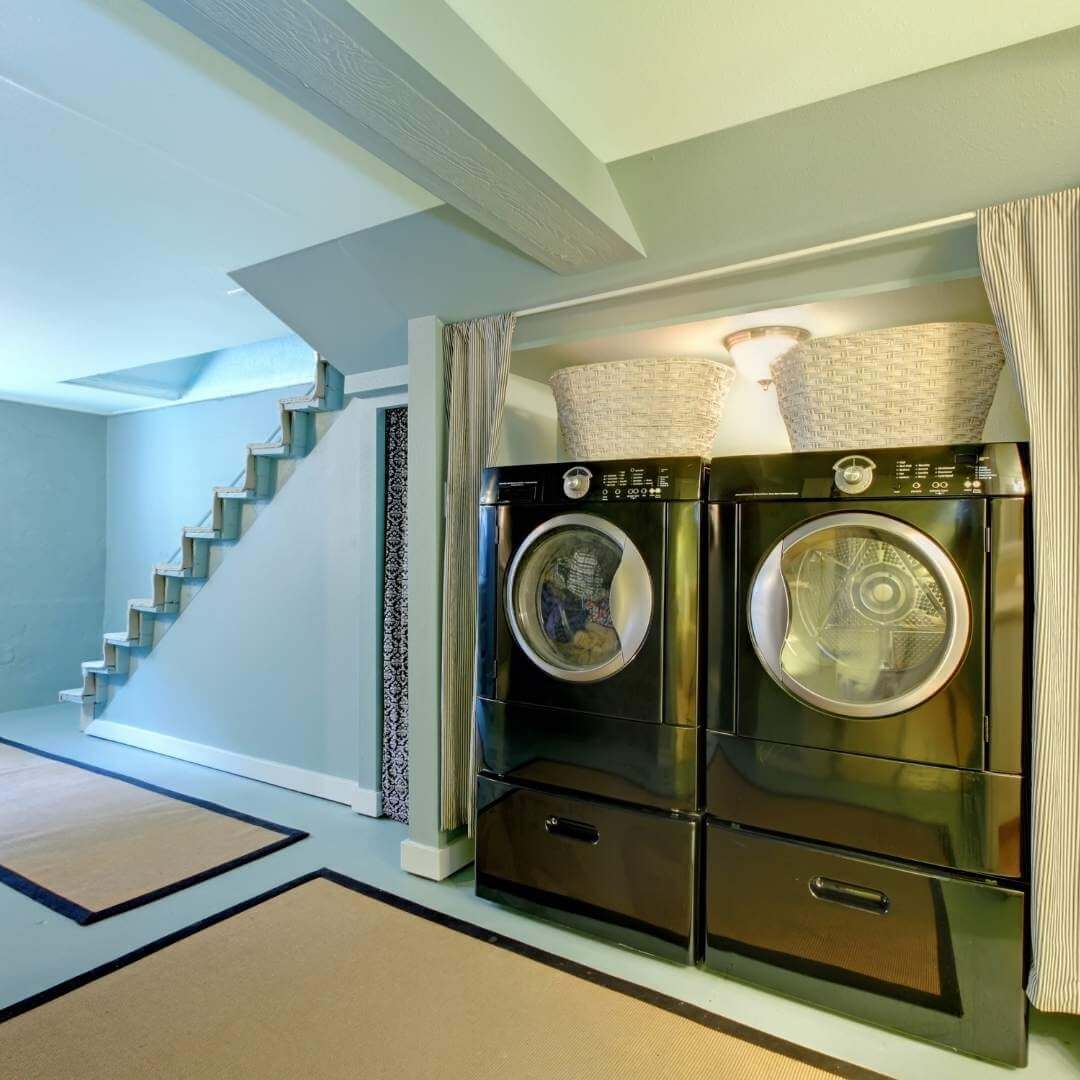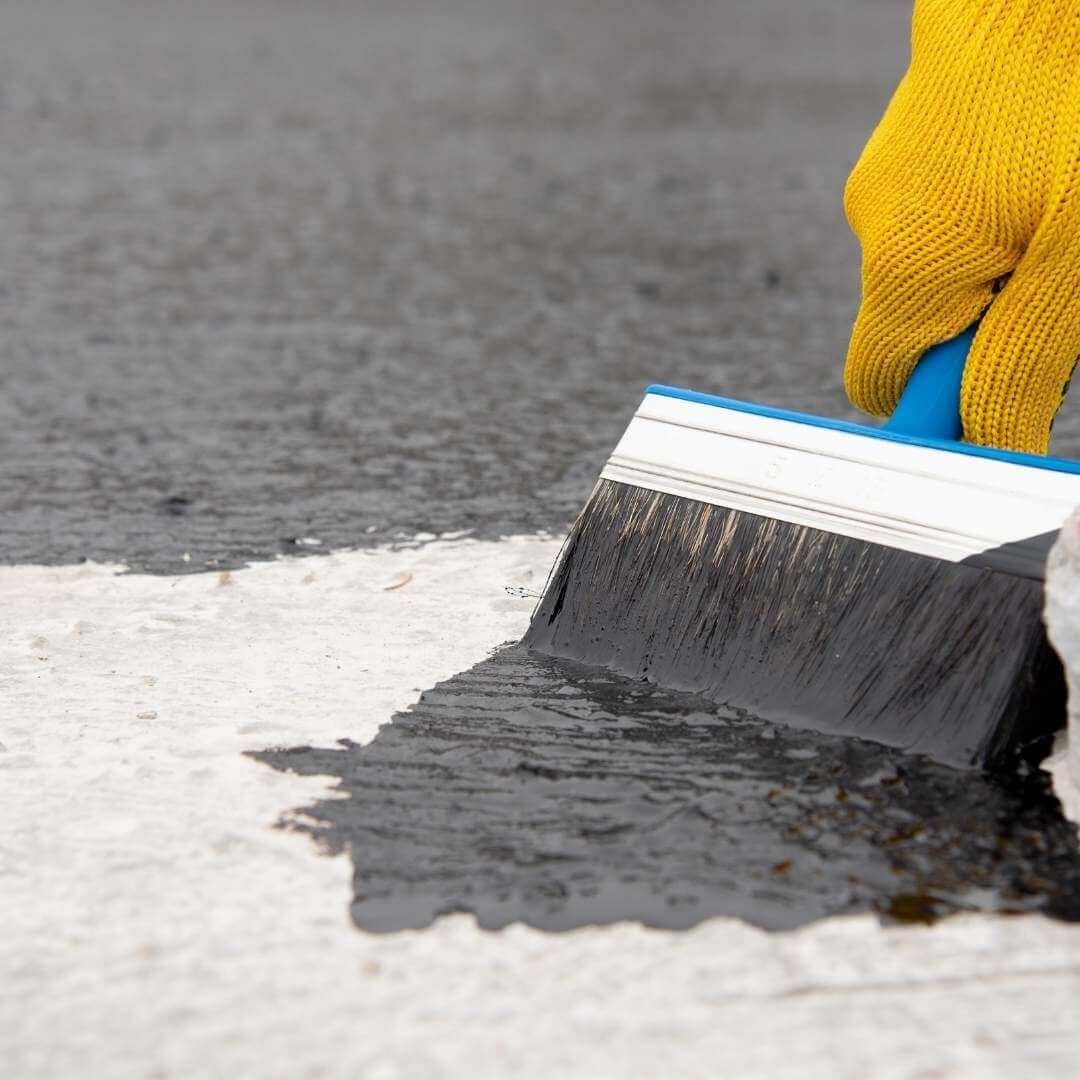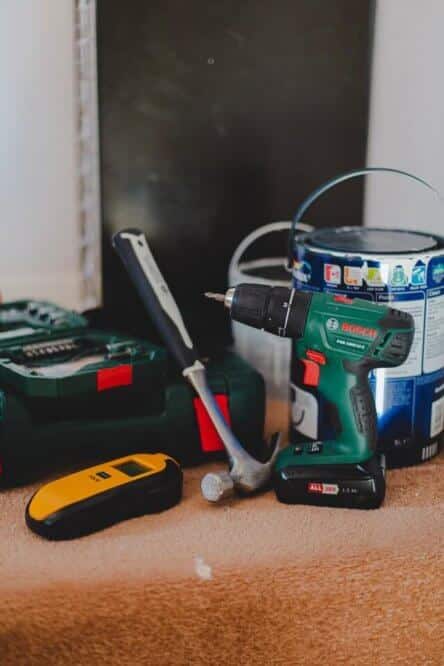No one wants to have water in their basement. The best way to prevent it is to waterproof it! But how much does it cost to waterproof a basement?
Many people don’t like to invest in prevention, thinking they’ll deal with the damage if and when it occurs. At the time, this seems like a more affordable solution. However, many times the cost of repairs can end up being much higher than what you would have paid for prevention.
Is this the case with waterproofing, or is this something you should only do if you live in an area susceptible to water damage? How much does it cost to waterproof a basement?
Let’s get our calculator in hand and start doing the math!
How Much Does It Cost to Waterproof a Basement?

Basement waterproofing means adding protective materials and various techniques to prevent water from getting into your basement. It can also include installing a trench drain that will move water further away from your basement.
Waterproofing can be done from both outside and inside, depending on the state of your property, the terrain you live on, as well as your own basement.
It can be a challenge to determine how much does it cost to waterproof a basement. This is because there are many factors that can affect the price. This includes:
- Your location. Weather climates in some areas can make waterproofing a challenging task.
- The size of the basement. The cost of waterproofing is usually determined per square foot, but more on this later on.
- The condition of your foundation. If there are any cracks, you’ll have to fill them in, and this can add to the costs.
In general, these costs can be anywhere between $1000 and $8000. On rare occasions, though, these costs can be much higher.
When you compare these costs to costs of installing devices such as the best backup sump pump with Wi-Fi, you might think they are too high. However, while sump pumps can help you remove the water from the basement, waterproofing will keep the water from ever entering it, which has many advantages. Most notably, it will prevent mold and mildew from harming your health.
Waterproofing Cost Per Square Foot
According to most online calculators and conversations with experts, you can expect to pay anywhere between $2 and $7 per square foot for waterproofing your basement. This can help you calculate how expensive would waterproofing your basement end up being.
For example, according to these numbers, the cost to waterproof 1000 sq ft basement would be anywhere between $2000 and $7000.
To calculate the exact price, you’ll need to consider the factors we’ve mentioned above. Also, it’s important to consider the products used for waterproofing. If you use premium products, the final cost will end up being much more expensive than it would be if you were using cheaper materials.
Also, the cost of labor needs to be considered. If you hire a contractor, everything can end up being more expensive – but you won’t have to deal with headaches of organizing everything on your own. This will also ensure you have the best experts who’ll do the job perfectly.
What Is Done to Waterproof a Basement
Another factor that will influence how much does it cost to waterproof a basement is the approach the contractors and workers have when dealing with your basement. In general, waterproofing can be done:
- Externally
- Internally
- With sealants
All three approaches have different costs, and they are usually done depending on your basement and preferences – although many times this can be done according to your budget and desires.
Exterior Waterproofing
The most effective – but also the most expensive – method is to waterproof your basement from outside. In other words, you’ll waterproof the basement’s foundation.
There are two ways you can do this: By installing a trench drain, or by using membranes and polymers. You can also combine these two methods.
Whichever you choose, costly excavation is necessary. This is a large job that can not only be disruptive, but also very dangerous. This is why you need to pay professionals to complete this job. Never attempt to mess with the foundation on your own. It’s more complicated than even insulation of a basement ceiling!
Also, if you install a trench drain, there is one more disadvantage: They are prone to clogging. Unclogging a trench drain can be a tedious task, which is why many people prefer other methods.
If you choose to install a trench drain, it’s important you use a high-quality product, such as VEVOR Trench Drain System. This will reduce the chances of clogging and costly repairs.
Still, this method remains the costliest one. When you include the excavation expenses, you can expect the costs to be $5000 or higher!
This is why this method might be the best option for those who are currently in the process of building a house and a basement. This way, chances are you’ll be excavating anyway, so you can avoid at least a portion of the costs.
Can You Waterproof a Basement from the Inside and How Much Will It Cost?

Another option is to waterproof a basement from the inside. For most homeowners, this method has the best value for the money. It is much more effective than using sealants, but also cheaper than completing an entire excavation for the external waterproofing.
Internal waterproofing is usually completed by installing a French drain. Unlike trench drains, French drains are much easier to maintain – although you can still make a few mistakes with them, as well, so be careful.
Next to installing a French drain, you can opt to install a sump pump. The prices of sump pumps can vary greatly. For example, a Superior Pump 91250 costs only around $60, while some more robust and effective models, such as Zoeller 57-0001 M57, can end up costing couple of hundreds.
When you add in the costs of installation, this will usually end up costing you a few thousand – $1000 to $3000 should do the trick. Of course, this depends on the pump, your basement, and the complexity of the installation process.
Waterproofing with Sealants
Using sealants or epoxy injections is usually just a quick solution once the cracks already appear. However, this is the most affordable option, which is why many homeowners opt for it instead of completing true waterproofing.
So, how does this method work?
You buy a sealan and apply it to the existing cracks. These sealants usually cost around $10, which is why they are an affordable option for many. You can even apply them on your own, without any professional help!
However, there are several issues with this method.
First, it only helps deal with cracks and small holes. As such, it is more a repair kit than it is a means of waterproofing anything.
Secondly, it won’t truly waterproof your basement, especially in case of a catastrophe. If you’re dealing with water damage on a regular basis, you’ll still need additional waterproofing.
Who Should Waterproof Their Basement?

Next to learning how much does it cost to waterproof a basement, you’re probably wondering who should waterproof it. The short answer would be: Everyone.
Still, some people are at greater risk of floods, and they should install some type of water protection – without an exception.
Here are some factors that determine your house should absolutely have a waterproofed basement:
You Live in Rainy Area
People living in areas where there are lots of rains and snowfalls might be more susceptible to floods. Rains can lead to underground waters, and this can ruin your basement.
The same goes for snow. When the snow melts, it will increase the amount of water underground. Not to mention how this can increase the chances of your basement ceiling leaking! If you know you have this issue, you should invest in a good waterproofing system.
Houses with Concrete Foundation
Concrete is one of the strongest materials when it comes to foundation. However, concrete has a huge flaw that we’ll explain.
Most concrete masonry units have large holes inside of them. While these holes make the masonry task easier, they can fill with water, increasing the chance of floods. The best way to keep this from happening is to drill a hole inside the bricks and to waterproof your home.
Old Homes
Old homes always require more repairs and tinkering. However, there is another reason why such homes should be waterproofed.
Homes built before the 1960’s have usually been built without footers. Footers are a type of concrete walls underneath the surface that serve as a foundation anchor and help weight dispersion. They can also help keep your basement somewhat safe from the floods. Without footers, you need to install at least some basic water protection.
Basements with Cracks
Basements with cracks are more likely to have humidity problems, which can result in mold and mildew. Holes and cracks allow water to get inside your basement. While this sounds harmless, it can result in severe flooding.
When you have a basement with cracks, you’ll need to seal the holes with some sealant first. However, this isn’t enough, and you should always invest in a good waterproofing job, as well.
Final Word: Is Waterproofing a Basement Worth It?
It is estimated that around 60% of US homes have a moisture problem in their basement. Considering that a flooded basement can be quite dangerous, waterproofing it is a smart investment.
Of course, it is up to you to determine whether something is worth the price or not. In general, anyone who lives in an area with a rainy climate should invest their basement and make it as safe as possible.
Even if you live in drier climates, you should still consider installing some protection. Water damage can happen to anyone, and the costs of repairs can end up being much higher than the cost of waterproofing – especially if you lose valuables. Learning how much does it cost to waterproof a basement might help you make a smart decision and prepare the funds you need.
Once again, waterproofing a basement is a difficult and dangerous task that you shouldn’t do on your own. Always call a professional to help you out.

Michael Davis is a heating & plumbing expert who currently works as independent contractor in SC. He also writes for Plumbertip.
For almost 10 years he worked on various plumbing tasks across South Carolina.



